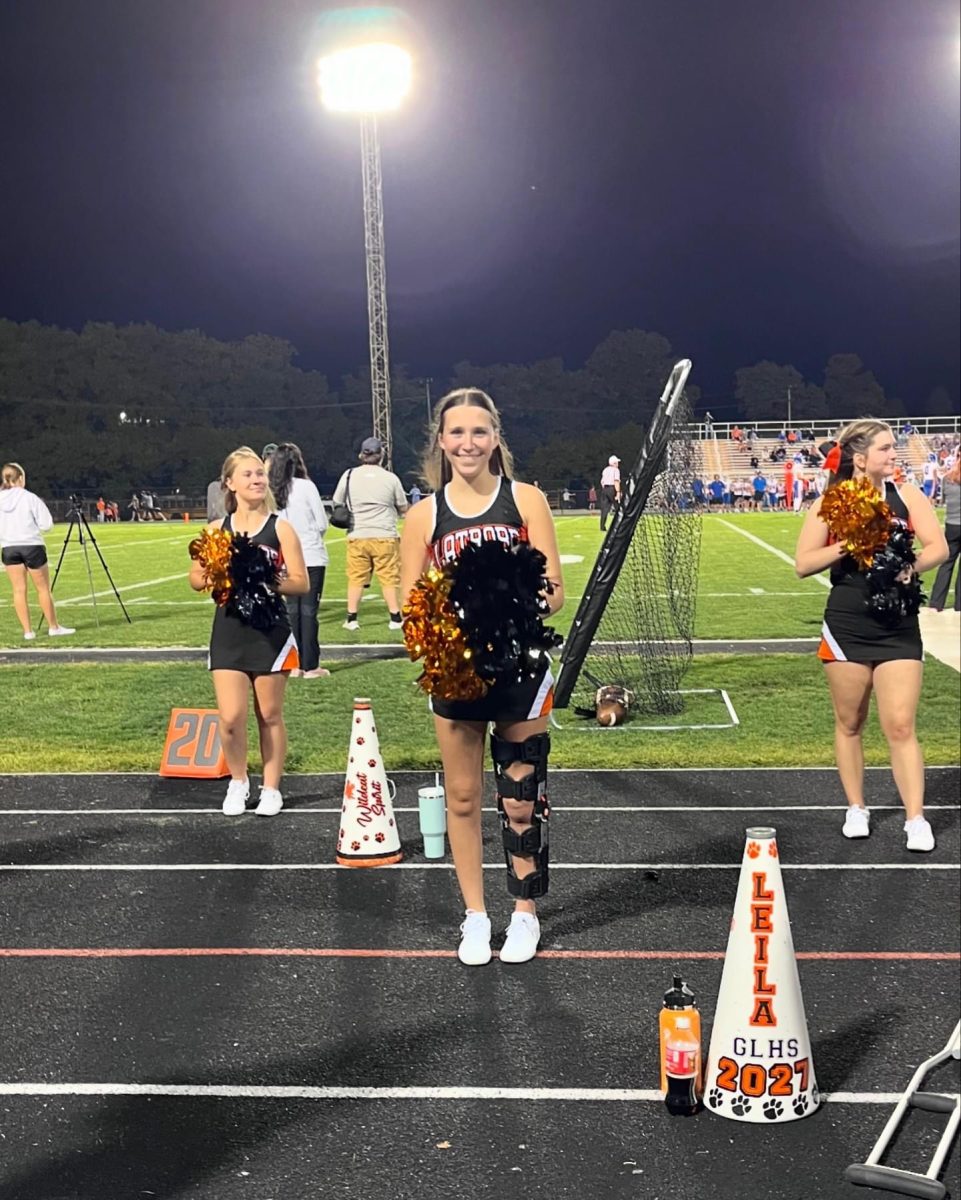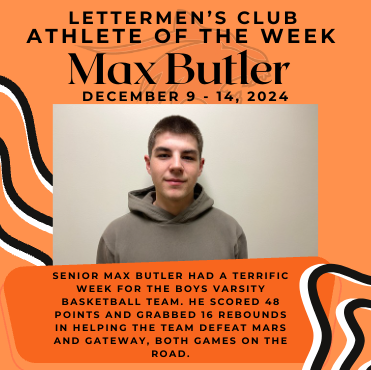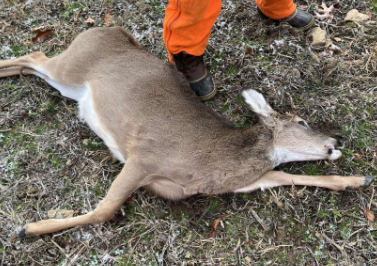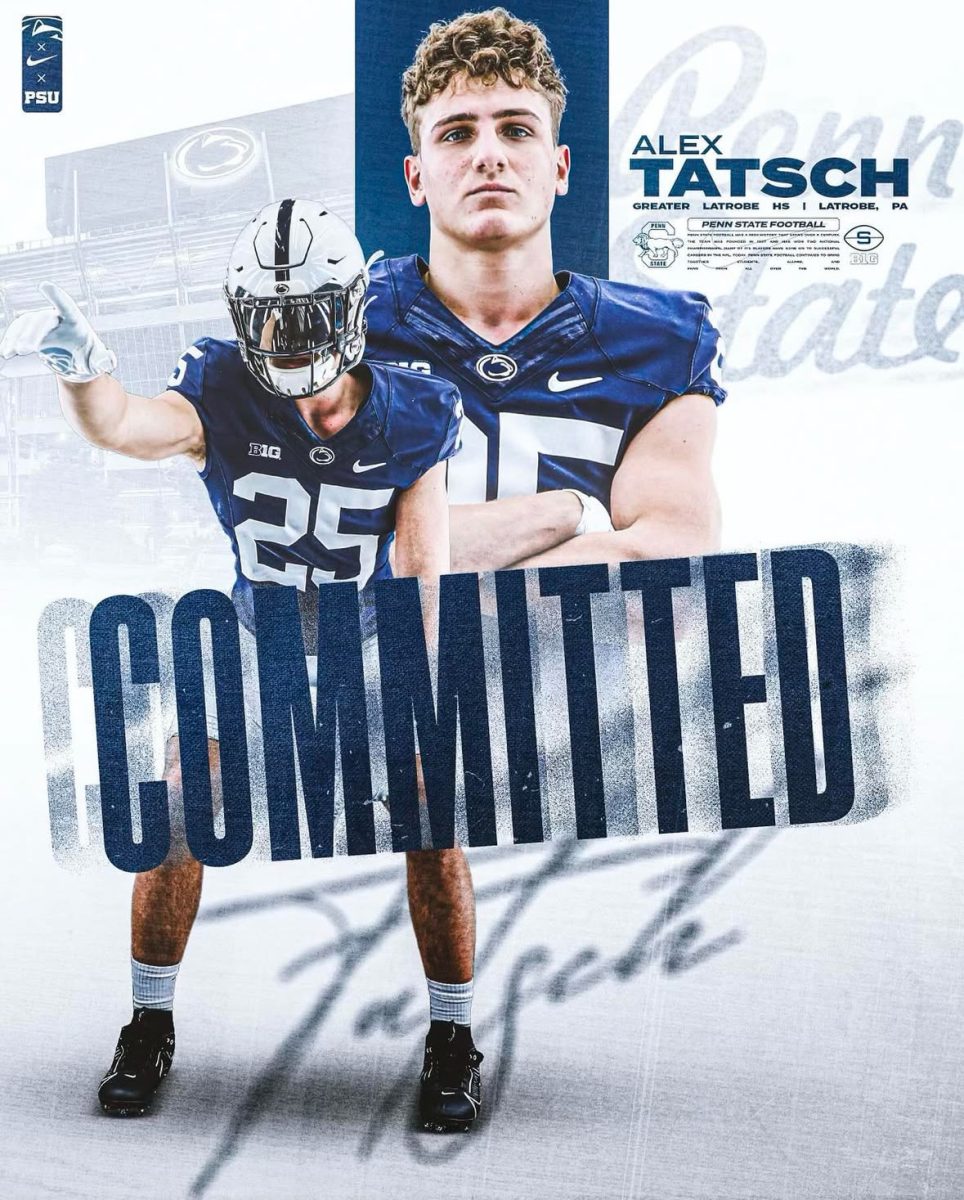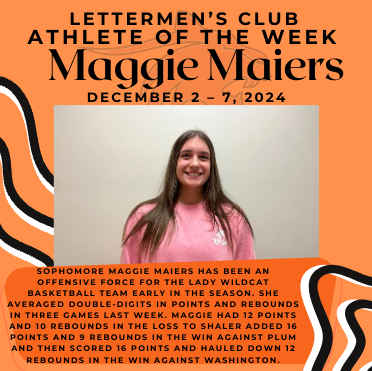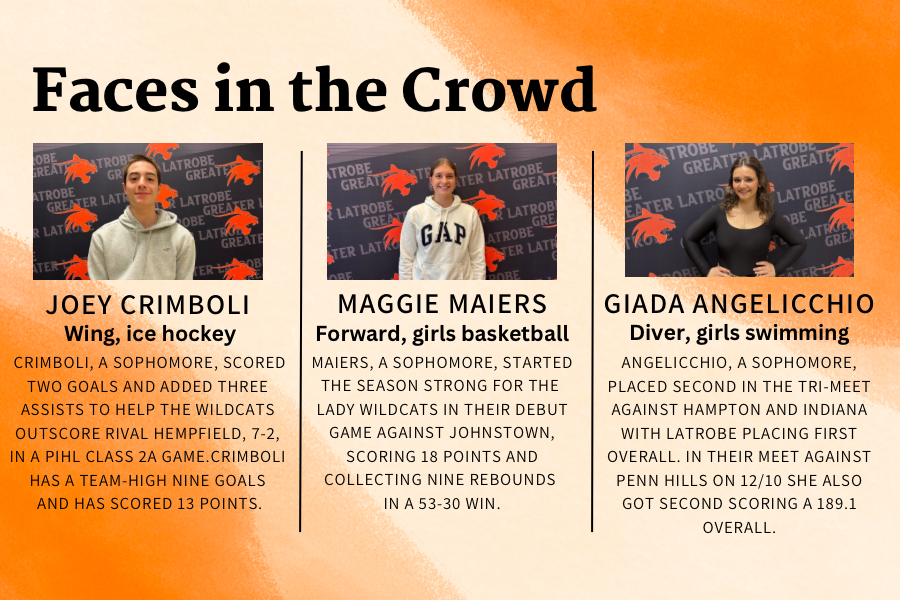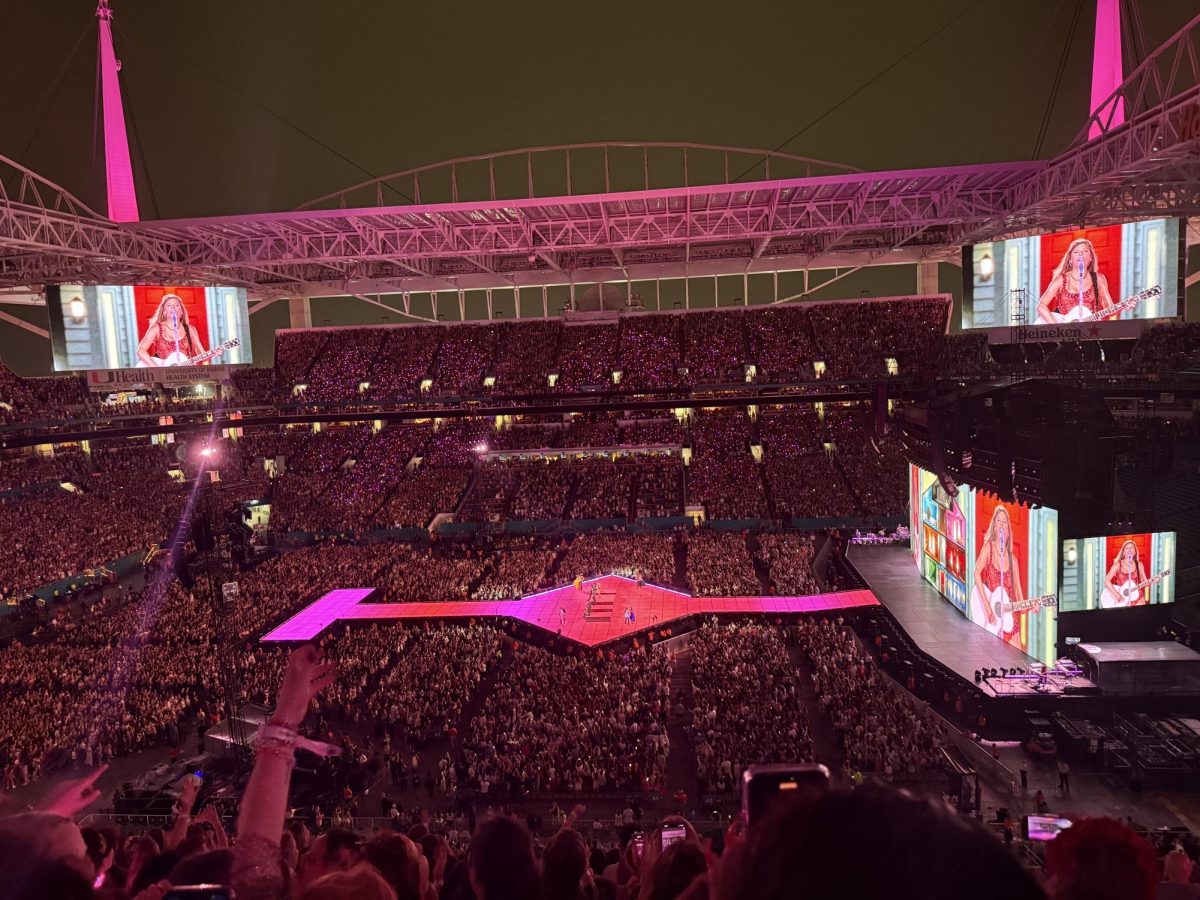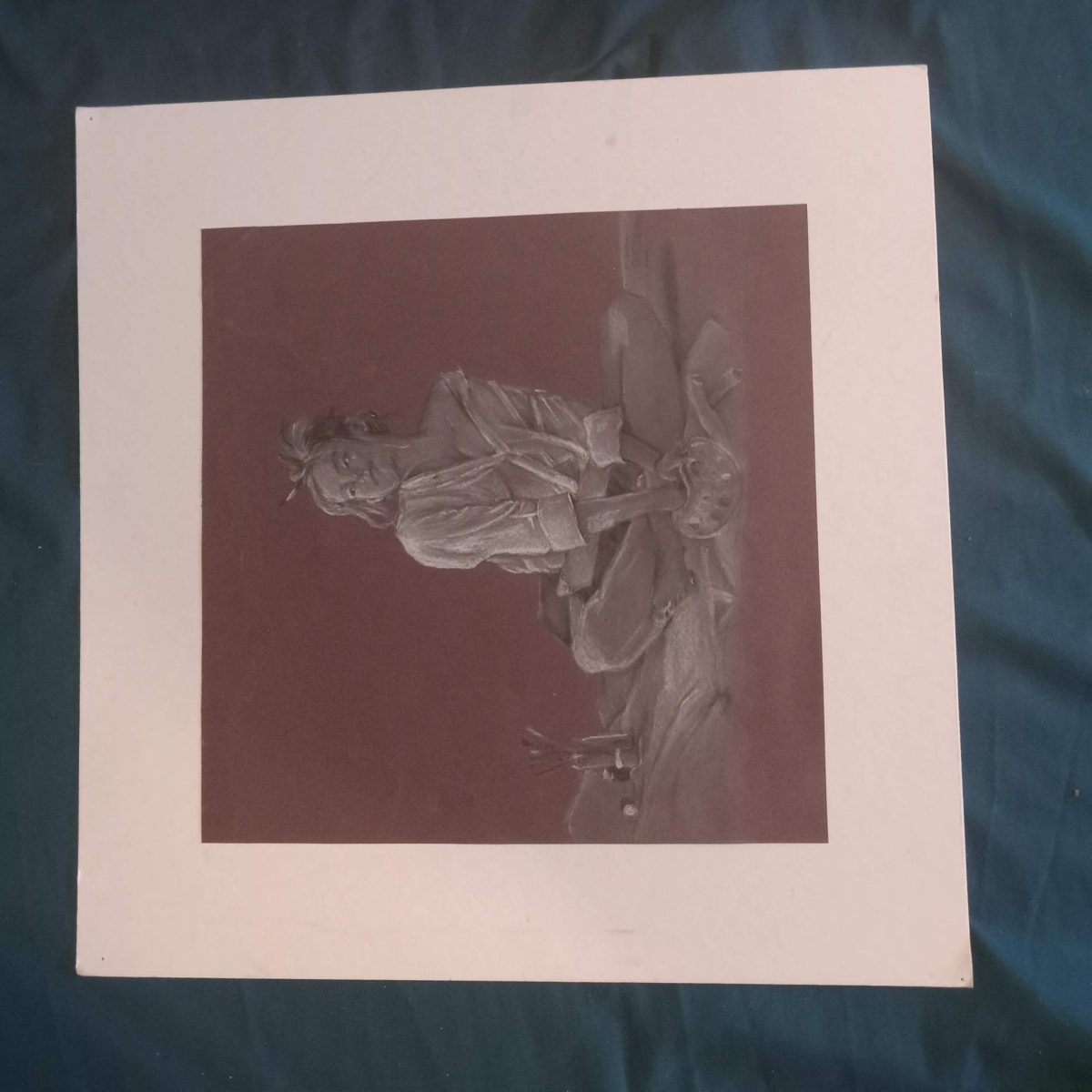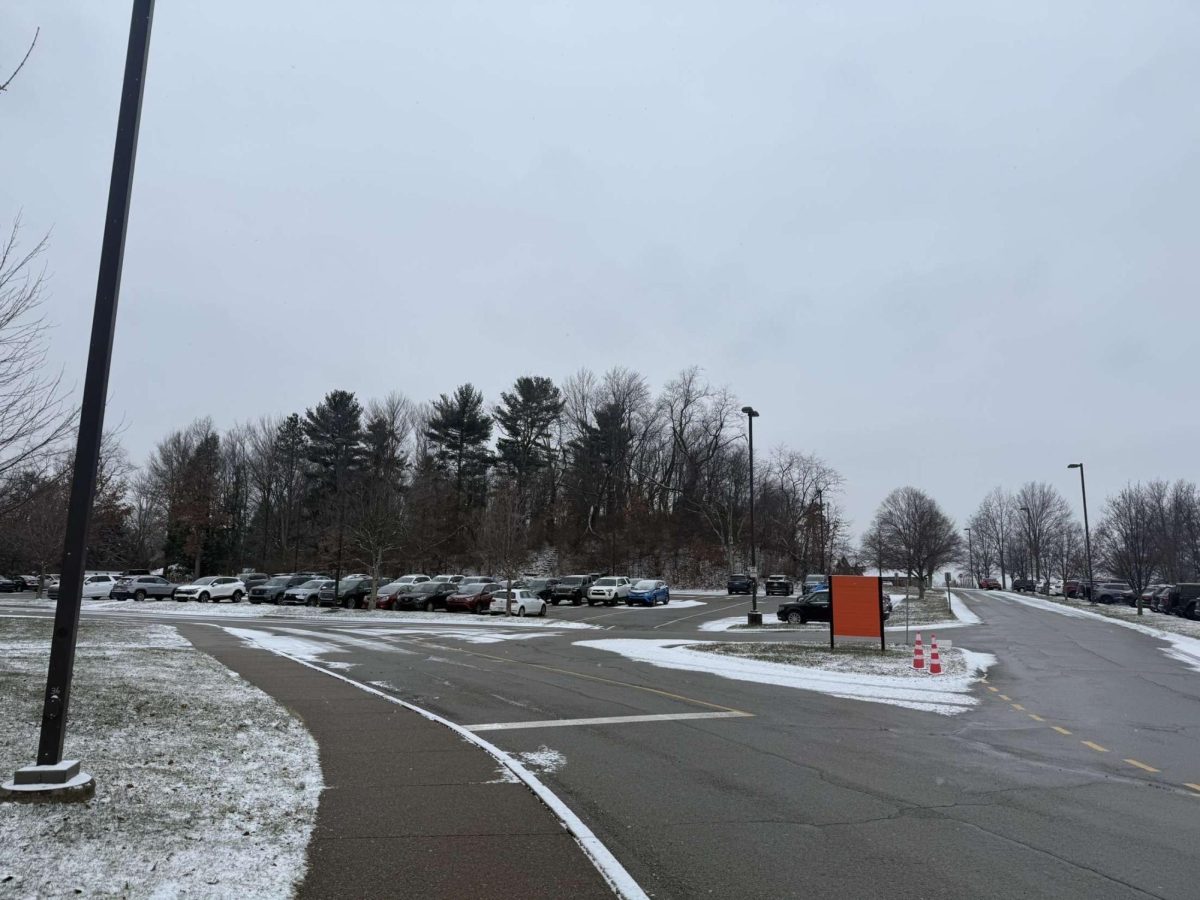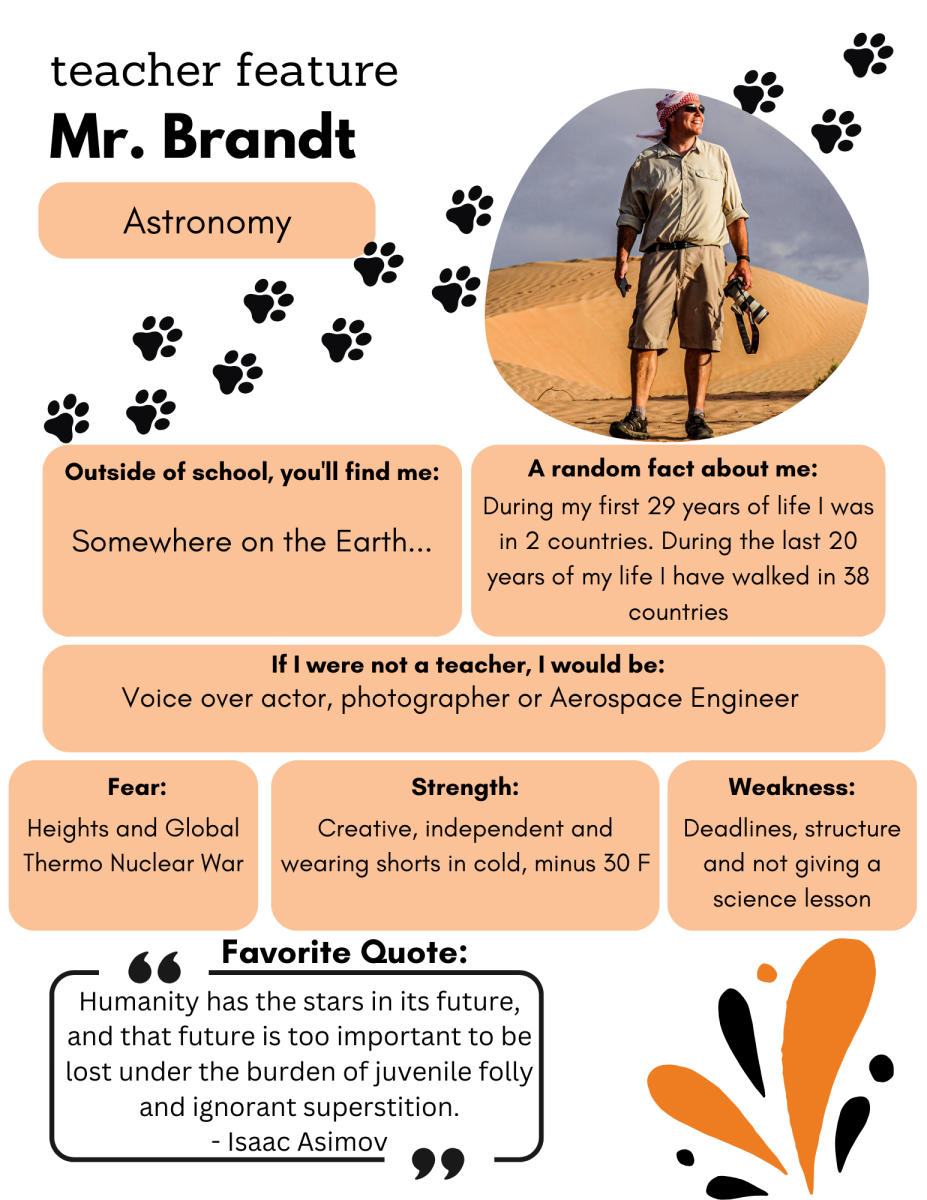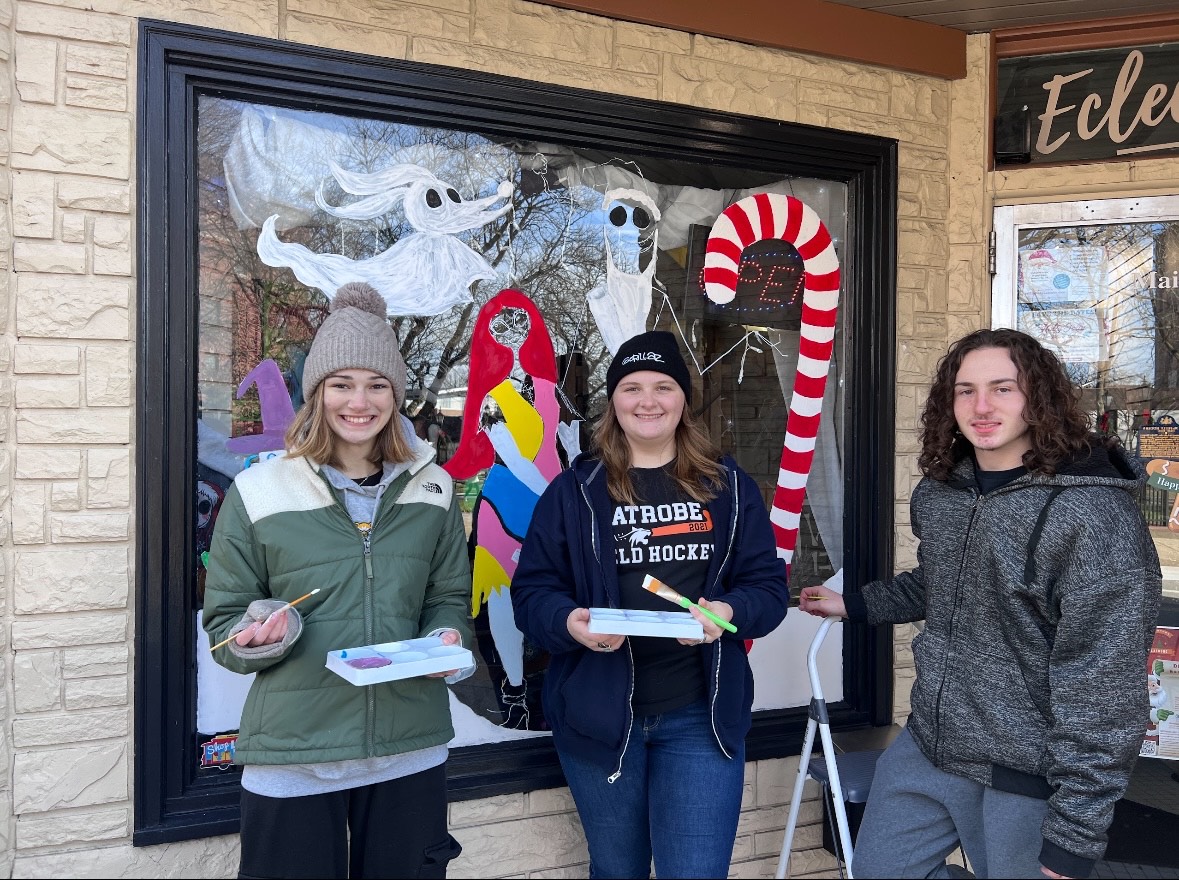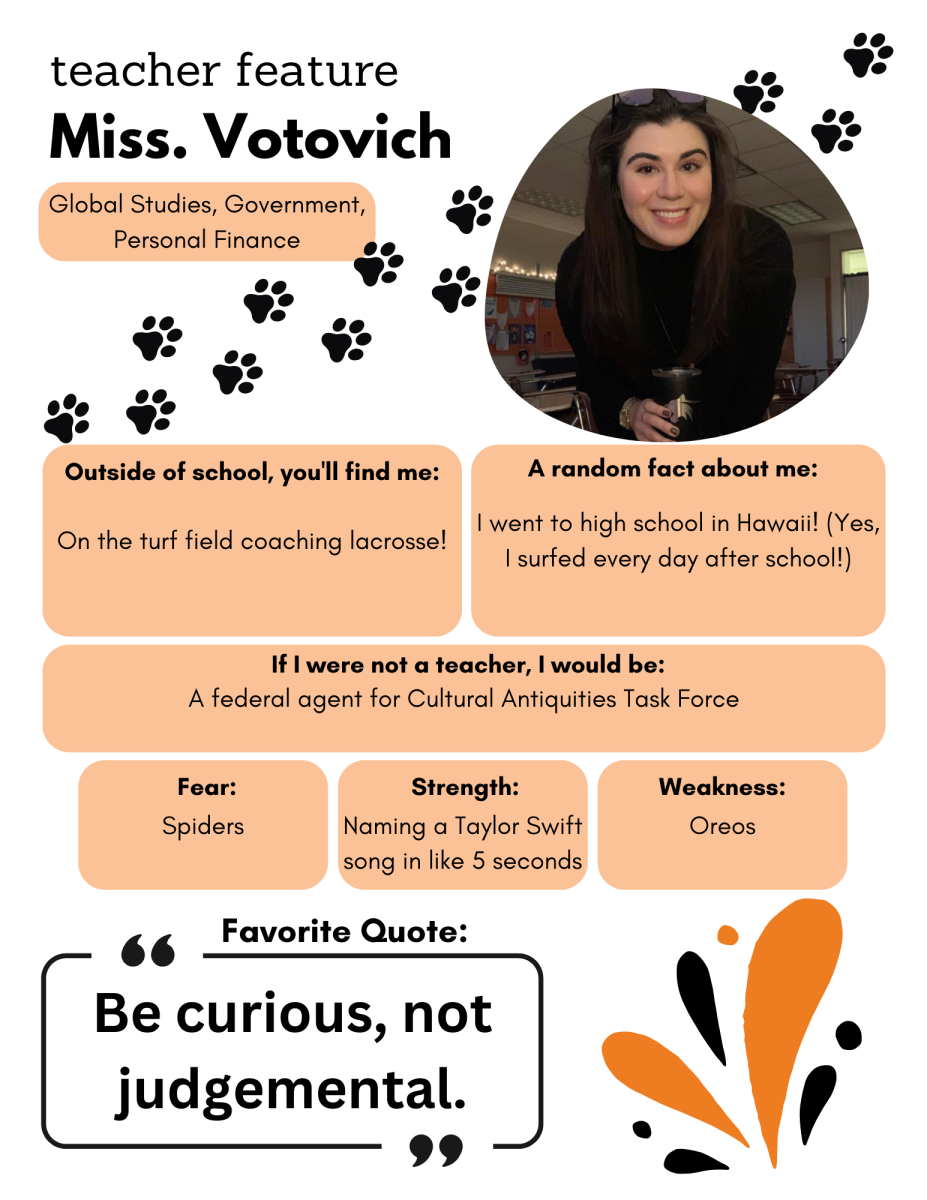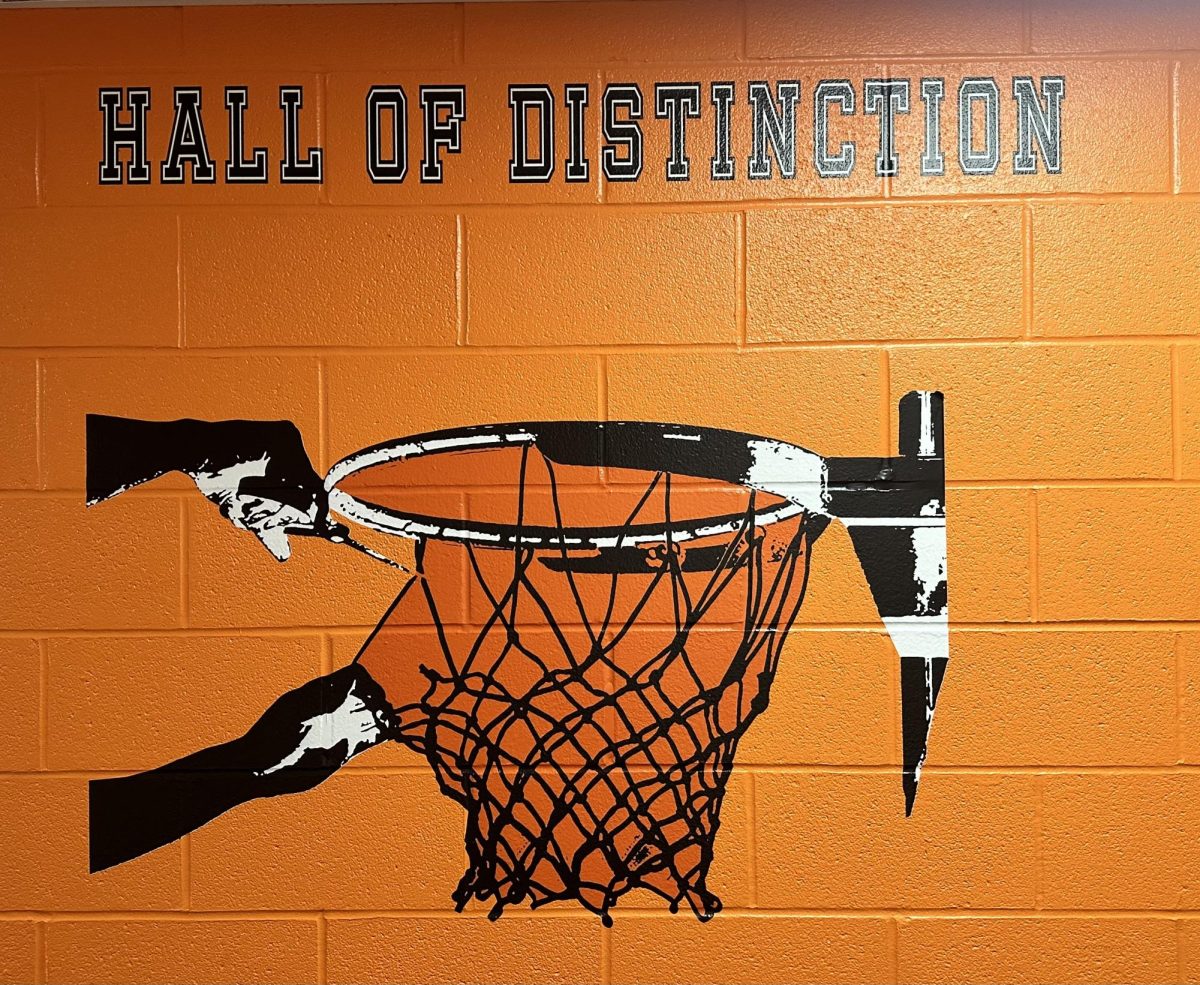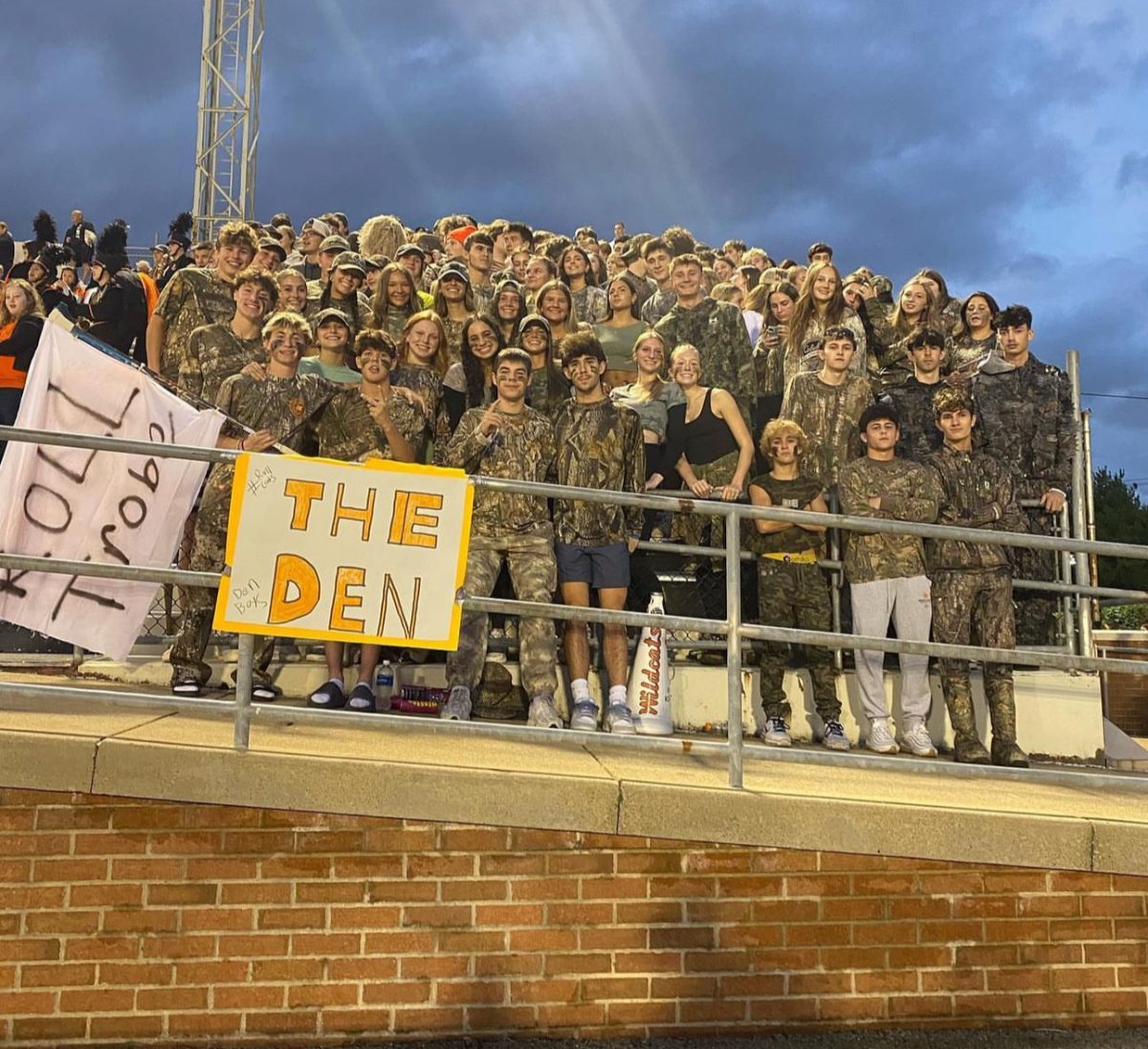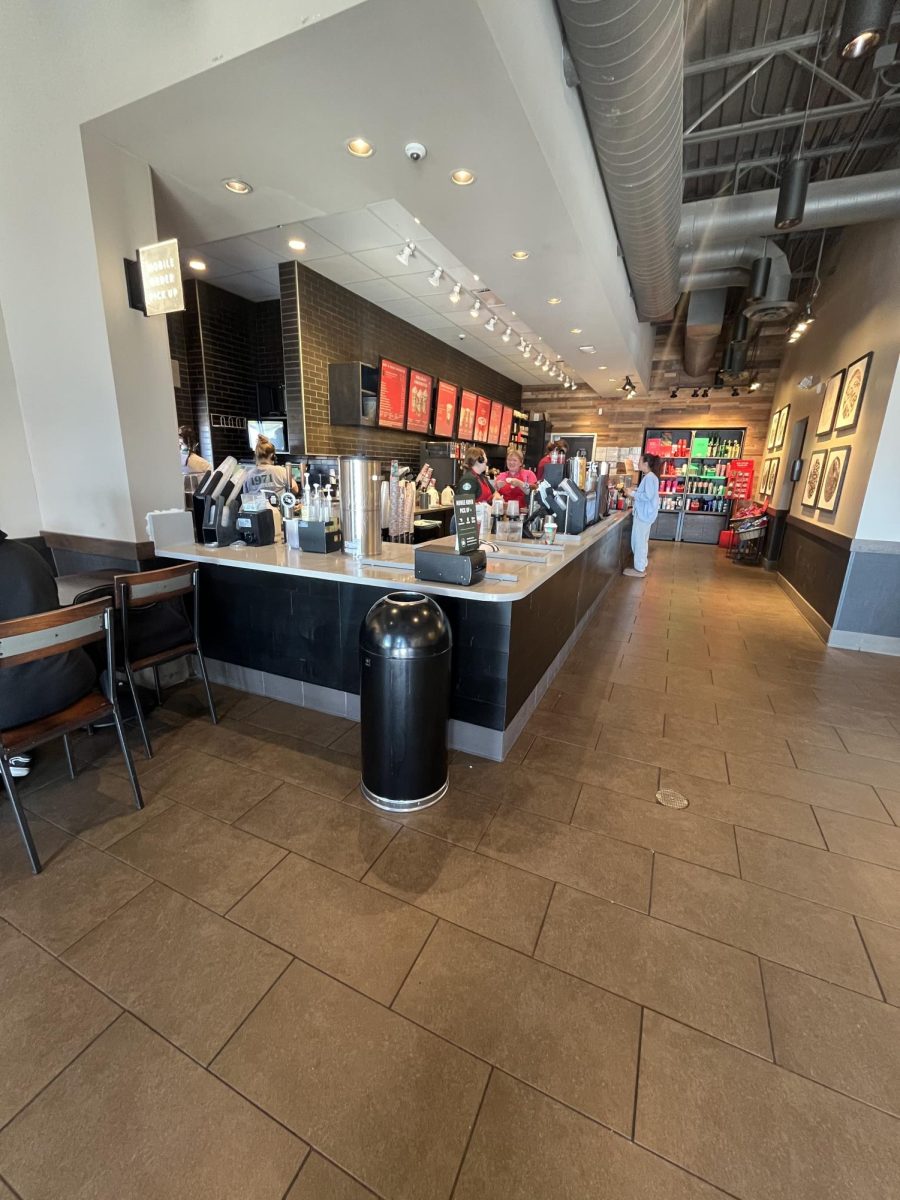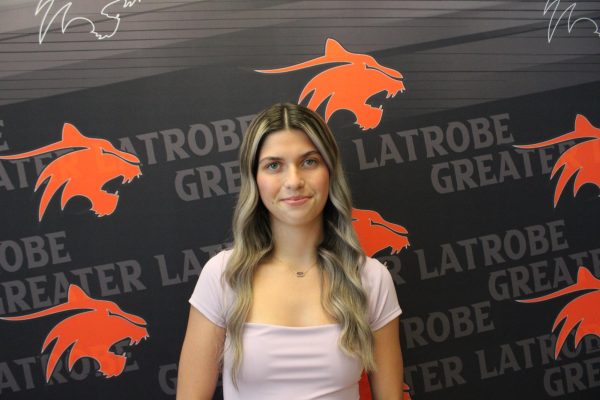One moment, she’s soaring high in the air, the next, she’s grounded with an injury that threatens to sideline her dreams.
41% of all sports injuries occur in the knee according to the British Journal of Sports Medicine. This is something sophomore Leila Halula knows far too well.
On July 18, 2024, Leila was at cheerleading practice as normal, when she came out of a stunt in an uncomfortable way. She thought nothing of it. She says, ¨When the injury first occurred, my thoughts were that it was a normal dislocation that happens all the time. So, I got up and walked on it after.¨ Leila now thinks that decision made her injury even worse.
After a few hours, the discomfort continued, and Leila knew this wasn’t normal. She has suffered from dislocating kneecaps her whole life on both legs, due to her kneecaps sitting too high on her leg. This is a genetic cause the cheerleader has managed since before she can remember, so she was accustomed to the feeling.
Later that day, she still didn’t feel right, so she headed to Latrobe Hospital. After an evaluation, the UPMC Children’s Hospital of Pittsburgh Orthopedics team agreed Leila needed further evaluation and treatment. She revealed, ¨They put me under ketamine and pushed my kneecap into place as much as possible. Once that was done, they drained most of the fluid in my knee!¨ 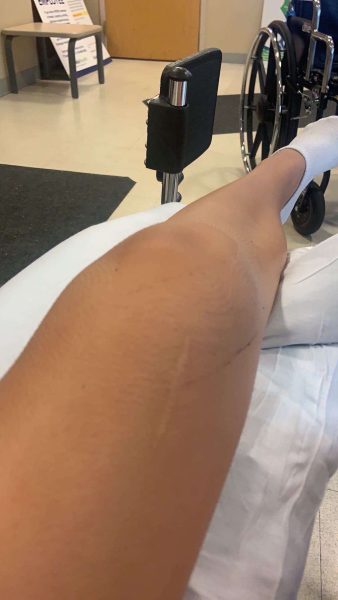
The sophomore cheerleader was yet to be out of the woods. After waiting impatiently for a diagnosis, the results were in and they weren’t what everyone was hoping for. The formal diagnosis was a torn MPFL (Medial Patellofemoral Ligament), a dislocated patella, and a fractured patella. At that moment, Leila knew there was a long road ahead involving several surgeries.
On August 2, only fifteen days after the incident occurred, Leila returned to UPMC Children’s Pittsburgh for her first surgery. She never had surgery before so she remembers being terrified. Prior to the surgery she said, “Before the surgery I was nervous. They gave me a medicine to make me ‘not remember anything’ which worked well.”
Her surgeon Dr. Jan Grudziak operated on her left knee. She recalls, “They had to reconstruct the ligament, take out the pieces of broken bone, put the kneecap back in place, put two metal screws in my knee to anchor it down so that it doesn´t dislocate anymore. Then, they had to drill through the bone and cartilage to reconstruct new growth.¨
After about four hours in the operating room, she was wheeled into the recovery room following the successful surgery. Halula says her pain was under control and she felt a lot of relief once the work was over.
This was just the beginning and the journey was far from over. Following her operation, Leila was placed in a T-Scope Post-Op Knee Brace for ligament reconstruction. Along with a set of crutches, the brace was her new best friend. She says, “I had three months in the brace, after what feels like forever, it’s optional to wear now.” 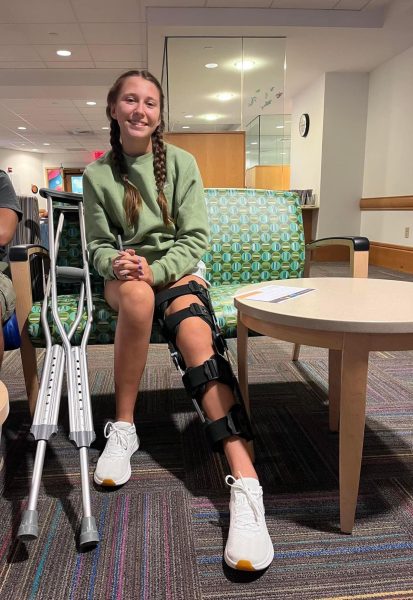
She was required to wear the brace 24/7 for several weeks, then she was allowed to remove it when sleeping. Leila mentioned, “If I ever walked without my brace, even at home, I would be in a lot of pain.”
The injury did not only affect Leila, but her friends and family too. She says, “I had to ride the elevator and my friends had to leave their classes early to help me.” Parker Selfridge and Amber Overly were always in Leila’s corner, supporting her in every way they could.
Having mobility restrictions did not stop Leila from being an “active” member of the cheerleading team. She continued attending regularly scheduled practices and events throughout the summer and school year, saying that her teammates were always cheering her on. “My team has been so supportive through the whole thing. Between coming to visit me and supporting me in the hospital, they were always there.”
Lexi Lyons, a teammate and friend to Leila said, “She is my partner in crime and my best friend, so her not being able to cheer with us was absolutely devastating. Now that she is finally recovering our team feels whole again. I am so grateful to have her by my side.” 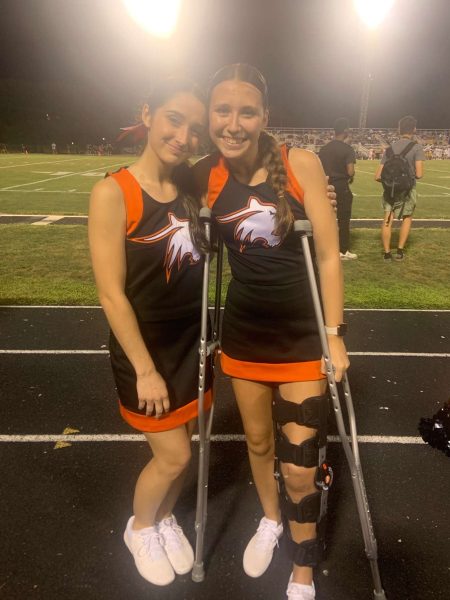
Having her team in her corner was a great distraction for Leila. She said, “Whenever I was at the first couple of games watching everyone cheer and knowing I couldn’t broke me.” There were two parts in the recovery process, mental and physical. She remembers that after her injury the events have been harder on her mental health, if not just as hard on her physical wellbeing. Leila says, “I couldn’t hang out with my friends. I was only laying down inside my house, rarely leaving or going outside.”
With the life-altering injury happening halfway through summer, looking back Halula remembers, “It’s hard not being able to do things other people are, or seeing what you’re missing out on, especially during summer.” She says she missed out on hanging out with her friends, swimming, and even just going outside.
At the beginning of football season, Leila had a regular seat on the sidelines. That didn’t last for long. At the third game of the season against the Norwin Knights the determined cheerleader put down her crutches and started attempting her return to normal. She adapted to the cheers and dances by standing and hitting her motions. Although she was unable to jump or spin, senior cheerleader Liv Leone was supportive, “Over this year I can say on the sidelines prior to and even now doing limited cheering she still catches your eye. I am so proud of her.” Leila reveals, “Cheer means the world to me. I don’t know what I would do without it and I love doing it.” 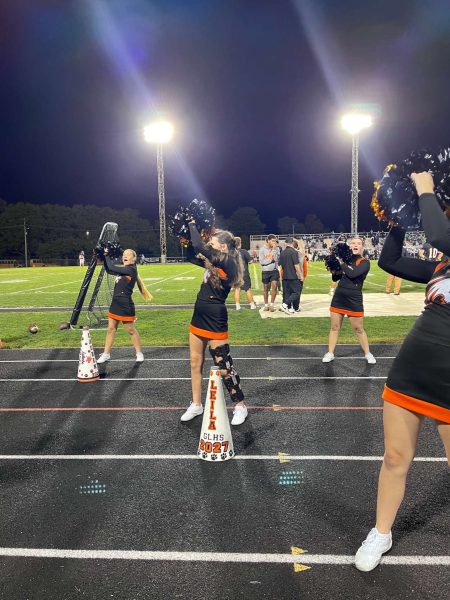
The fifteen-year-old said, “It changed my life.” Over spring break Leila will undergo a second surgery to repair the damage to her right knee. This time her surgeon will push her knee back into its rightful place before putting two metal screws in to anchor it down. She leaves us with the message to “Never give up, no matter the journey.”


